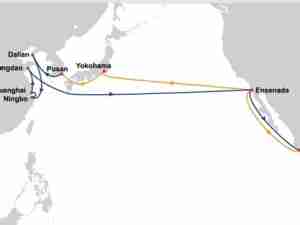A surge in breakbulk cargo imports has helped spur the Port of New Orleans recovery efforts in the 12 months following Hurricane Katrina.
Total general cargo figures for the first eight months of 2006 are up 9.5% overall, boosted by a nearly 38% gain in traditional breakbulk cargo imports. In addition, the 2006 figures are 9.5% ahead of the Port's five-year average for the period.
'We've been able to achieve this mostly due to our traditional breakbulk cargoes,' said Gary LaGrange, President and CEO of the Port of New Orleans. 'We lost about a third of our container capacity from the storm and container shipments reflect that. However, we've been able to make up the difference with increased breakbulk shipments.'
LaGrange delivered the cargo figures to transportation officials in New Orleans for the 17th Annual Breakbulk Transportation Conference and Exhibition, held today and tomorrow at the New Orleans Marriott. The Port of New Orleans traditionally serves as the conference's host. However, the conference was moved to Houston, Texas a year ago due to the aftermath of Katrina.
'The Port of New Orleans is proud to have the Breakbulk Conference back where it belongs,' LaGrange told the group. 'It means a lot to this Port and to the City of New Orleans that you are here visiting us, seeing our progress and spending your dollars in our hotels and restaurants.'
Breakbulk cargo is loose cargo shipped on pallets or bundles and stowed in a vessel's hold as opposed to containerized or bulk cargo. Iron and steel, natural rubber, forestry products and non-ferrous metals are the Port's leading breakbulk commodities.
Compared to the same period in 2005, iron and steel imports rose 37% during the first eight months of 2006, totaling 2.96 million short tons. Natural rubber rose 22.6% for the same period, totaling 316,418 short tons through August 2006. Forestry products, namely lumber, rose a modest three percent so far in 2006 to 265,885 short tons. A short ton equals 2,000 pounds. Overall, cargo at the Port's board-owned facilities totals more than 5.7 million short tons, up 9.5% compared the same period one year ago.






